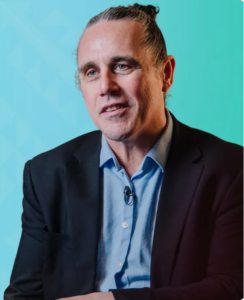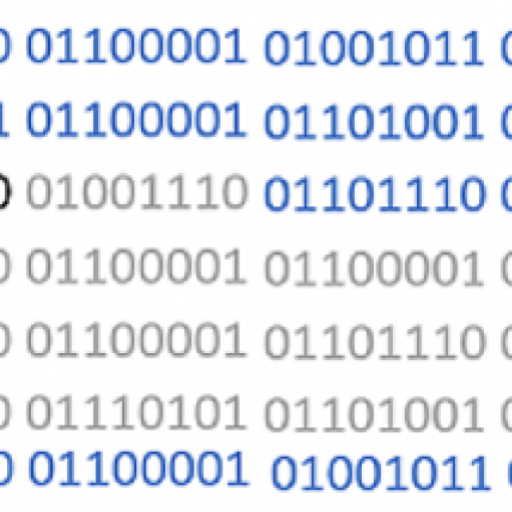Taiuru & Associates Ltd is an Aotearoa New Zealand based consultancy specialising in AI governance, responsible AI, data governance, Māori data rights, and emerging technology risk. We help boards, executives, iwi and Māori organisations, and public sector leaders make confident decisions about AI and digital systems that grounded in practical risk management, legal compliance, and real world operational delivery.
Led by Dr Karaitiana Taiuru , Taiuru & Associates brings decades of experience across technology, governance, and Indigenous rights. Dr Taiuru is widely recognised for his work on algorithmic bias, AI ethics, digital identity, data governance, and Māori intellectual property in the context of modern data and AI systems. Our work is designed to be useful, implementable, and measurable so organisations can move beyond policy statements and actually embed good governance into technology programmes.
Why organisations choose us
Board-grade advice that is practical. We translate complex technical issues, AI models, data pipelines, cloud platforms, automated decisions into clear governance decisions and risk trade offs. Our outputs are designed to be used in the real world: frameworks, templates, briefings, decision gates, and measurable controls.
Deep capability across AI + governance + Māori rights
Taiuru & Associates brings a rare combination: emerging technology governance expertise alongside deep understanding of Māori rights, tikanga, and cultural risk in digital environments.
Independent, outcomes-focused consulting
We are not selling software. We provide independent advice focused on reducing risk, improving capability, and helping organisations deliver outcomes that are lawful, ethical, and trusted.
 About Dr Dr Karaitiana Taiuru JP, MInstD.
About Dr Dr Karaitiana Taiuru JP, MInstD.
Primary Iwi affiliations: Ngāi Tahu, Ngāti Kahungunu, Ngāti Toa.
Dr Karaitiana Taiuru is a preeminent Māori expert in the intersection of tikanga Māori (cultural values), mātauranga Māori (traditional knowledge), and emerging digital technologies. He specialises in areas such as AI ethics, Māori Data Sovereignty, digital governance, and intellectual property rights.
From cultural appropriation in algorithm design to the risks and opportunities AI presents for all communities, Dr Taiuru provides useful and practicable insights and advise into the ethical, governance, and rights-based issues that can’t be ignored. Whether you’re in policy, product design, or technical leadership, Dr Taiuru will challenge your organisation to think more critically and inclusively about the future we’re building.
He is also known for his work with various tech boards and organisations, including his involvement with the AI Forum Kāhui Māori and the Institute of AI Governance.
The above is AI assisted summary.
Current and recent projects include multiple projects across several universities including: University of Auckland including “A collaboration to develop an Aotearoa Health AI Evaluation Framework” working with multiple other universities, The Australian National University “AI as Infrastructure: Large Language Models for Transnational Historical Research”; University of Canterbury Marsden Fund “Training natural language models to understand genomics and study gout in Māori and Pacific populations”, “AI-driven Two Way, Feedback Controlled Emotional Recognition Training for Individuals with Autism Spectrum Disorder”; University of Canterbury and Health Research Council “Development and validation of Human Digital Twins for reversing Type II Diabetes” providing tikanga Māori expertise with Data and AI; LandCare Research “Harnessing generative artificial intelligence to inform nature-based adaptation to climate change”; Victoria University of Wellington “Saving Screen Time: People with ADHD and Disconnecting from the Internet” using tikanga Māori Data Sovereignty to understand cultural differences.
Publications
Beattie, A., Kerr, J., & Taiuru, K. (2024). The demographics of digital disconnection: Prevalence, motives and barriers to disconnecting from the internet in Aotearoa New Zealand. Communication Research and Practice, 10(4), 475–495.
Beattie, A., Kerr, J., & Taiuru, K. (2024). The demographics of digital disconnection: Prevalence, motives and barriers to disconnecting from the Internet in Aotearoa New Zealand. Communication Research and Practice, 10(4), 475–495. https://doi.org/10.1080/22041451.2024.2370184
Chen, C. Y., Christoffels, A., Dube, R., et al. (2024). Increasing the presence of BIPOC researchers in computational science. Nature Computational Science, 4(9), 646–653. https://doi.org/10.1038/s43588-024-00693-6
Christchurch Heart Institute/Rangahau Manawa o Ōtautahi. (2021). CHI Māori data sovereignty statement and commitment (Version 2). Christchurch Heart Institute/Rangahau Manawa o Ōtautahi.
Christchurch Heart Institute/Rangahau Manawa o Ōtautahi. (2021). Commitment to Te Tiriti and the United Nations Declaration of the Rights of Indigenous Peoples. Christchurch Heart Institute/Rangahau Manawa o Ōtautahi.
Christchurch Heart Institute/Rangahau Manawa o Ōtautahi. (2021). Māori engagement strategy. Christchurch Heart Institute/Rangahau Manawa o Ōtautahi.
Goffi, E. R., & Momcilovic, A. (Eds.). (2022). Can an AI be sentient? Multiple perspectives on sentience and on the potential ethical implications of the rise of sentient AI (Notes No. 2). Global AI Ethics Institute.
Hogan, A., Stiles, S. L., Kerr, A. J., Le Quesne, L., Taiuru, K., Stabej, M., Robb, G., & Marsland, S. (2025). Our heart, our genes, our story / Ō Tātou Ngākau, Ō Tātou Ira, Ō Tātou Kōrero. Heart, Lung and Circulation, 34(Suppl. 3). https://doi.org/10.1016/j.hlc.2025.06.503
Huaman, E., & Martin, N. (Eds.). (2023). Indigenous research design: Transnational perspectives in practice. Canadian Scholars.
Jackson, G. H., & Taiuru, K. (2023). Mechanisms for digital transformation in the education and healthcare sectors utilizing decentralized self-sovereign identity. International Journal of Network Security & Its Applications, 15(2), 1–21. http://dx.doi.org/10.5121/ijnsa.2023.15201
Knott, A., Taiuru, K., Whittaker, R., Kerr, J., & Baker, M. (2024, June 27). Has the time come for a register of AI systems used by government agencies? Public Health Communication Centre Aotearoa. https://www.phcc.org.nz/briefing/has-time-come-register-ai-systems-used-government-agencies
Levinson-Waldman, R. (2024). Social media monitoring by New Zealand agencies: Policy and legal landscape, risks, and considerations. Fulbright New Zealand.
Pendergrast, A., & Pendergrast, K. (Eds.). (2022). More zeros and ones: Digital technology, maintenance and equity in Aotearoa New Zealand. Bridget Williams Books.
Pham, L., Lambie, T., & Taiuru, K. (2019). Three perspectives on Canterbury freshwater management. Policy Quarterly, 15(3). https://ojs.victoria.ac.nz/pq/article/view/5686
Stückelberger, C., Merchán Rocamora, M., Singh, D., & Duggal, P. (Eds.). (2024). AI governance ethics: Artificial intelligence with shared values and rules. Globethics Publications. https://doi.org/10.58863/20.500.12424/4318987
Taiuru, K. (2016, May). Māori activism and hidden achievements in New Zealand’s internet domain name system. Taiuru & Associates. https://www.researchgate.net/publication/371696352_Maori-activism-and-hidden-achievements-in-New-Zealand%27s-Internet-Domain-Name-System_1
Taiuru, K. (2017). 20 years of reflections using technology to compile Māori language dictionaries. In H.
Whaanga, T. T. A. G. Keegan, & M. Apperley (Eds.), He whare hangarau: Māori language, culture & technology. Te Whare Wānanga o Waikato/University of Waikato.
Taiuru, K. (2017). Māori domains. In H. Whaanga, T. T. A. G. Keegan, & M. Apperley (Eds.), He whare hangarau: Māori language, culture & technology. Te Whare Wānanga o Waikato/University of Waikato.
Taiuru, K. (2018). Introduction to Māori cultural considerations with genetics. Taiuru & Associates. https://www.taiuru.co.nz/introduction-to-tikanga-maori-considerations-with-genomics/
Taiuru, K. (2018, November). Data is a taonga: A customary Māori perspective. Taiuru & Associates. https://www.researchgate.net/publication/329089721_Data_is_a_Taonga_A_customary_Maori_perspective
Taiuru, K. (2020). Treaty of Waitangi/Te Tiriti and Māori ethics guidelines for: AI, algorithms, data and IoT. Karaitiana Taiuru. https://natlib.govt.nz/records/46166887
Taiuru, K. (2020, November). Māori data sovereignty with AI, algorithms, IOT and machine learning: Rights afforded to Māori & Crown obligations with legal instruments. Taiuru & Associates. https://www.researchgate.net/publication/345544774_Maori_Data_Sovereignty_with_AI_Algorithms_IOT_and_Machine_learning_Rights_afforded_to_Maori_Crown_obligations_with_legal_instruments
Taiuru, K. (2020, September). Māori data sovereignty and digital colonisation: Treaty of Waitangi overview. (Conference paper). https://www.researchgate.net/publication/344306184_Maori_Data_Sovereignty_and_Digital_Colonisation_Treaty_of_Waitangi_overview
Taiuru, K. (2022). A compendium of Māori data. Karaitiana Taiuru. https://natlib.govt.nz/records/47919277
Taiuru, K. (2022). A Māori cultural perspective of AI/machine sentience. In E. R. Goffi & A. Momcilovic (Eds.), Can an AI be sentient? Multiple perspectives on sentience and on the potential ethical implications of the rise of sentient AI (Notes No. 2). Global AI Ethics Institute.
Taiuru, K. (2022). Honouring Te Tiriti o Waitangi in data and technology projects. In A. Pendergrast & K. Pendergrast (Eds.), More zeros and ones: Digital technology, maintenance and equity in Aotearoa New Zealand. Bridget Williams Books.
Taiuru, K. (2022). Tikanga tawhito tikanga hou kaitiaki guidelines for DNA research, storage and seed banks with taonga materials. Karaitiana Taiuru. https://natlib.govt.nz/records/47981535
Taiuru, K. (2023). Māori data is a taonga. In E. Huaman & N. Martin (Eds.), Indigenous research design: Transnational perspectives in practice. Canadian Scholars.
Taiuru, K. (2023, August). Te Tiriti o Waitangi principles for robotics: Legal and constitutional considerations of Māori and Te Tiriti with robotics? Taiuru & Associates. https://www.researchgate.net/publication/374368464_Te_Tiriti_o_Waitangi_Principles_for_Robotics_Legal_and_constitutional_considerations_of_Maori_and_Te_Tiriti_with_robotics
Taiuru, K. (2023, June). Te Reo Māori/The Māori language revitalisation and adaption with AI. (Conference paper). https://www.researchgate.net/publication/371696322_Te_Reo_MaoriThe_Maori_Language_revitalisation_and_adaption_with_AI
Taiuru, K. (2024). AI regulation from an Indigenous Māori / New Zealand perspective. In C. Stückelberger, M. Merchán Rocamora, D. Singh, & P. Duggal (Eds.), AI governance ethics: Artificial intelligence with shared values and rules. Globethics Publications. https://doi.org/10.58863/20.500.12424/4318987
Taiuru, K. (2024, February). Artificial intelligence regulation from a Māori perspective. Taiuru & Associates. https://www.researchgate.net/publication/378682348_Artificial_Intelligence_Regulation_from_a_Maori_Perspective
Taiuru, K. (2024, February). Facial recognition and artificial intelligence profiling. Taiuru & Associates. https://www.researchgate.net/publication/378691715_Facial_Recognition_and_Artificial_Intelligence_Profiling
Taiuru, K. (2024, March). Māori voices in the artificial intelligence (AI) landscape of Aotearoa New Zealand: An interim research report. Taiuru & Associates. https://www.researchgate.net/publication/379237686_Maori_Voices_in_the_Artificial_Intelligence_AI_Landscape_of_Aotearoa_New_Zealand_An_interim_research_report
Taiuru, K. (2024, November). Māori and Iwi investments in NZ data centres. Taiuru & Associates. https://www.researchgate.net/publication/387578092_Maori_and_Iwi_investments_in_NZ_data_centres
Taiuru, K. (2024, November). Māori data jurisdiction. Taiuru & Associates. https://www.researchgate.net/publication/387580530_Maori_Data_Jurisdiction
Taiuru, K. (2025, December). When clinical algorithms don’t see us: Māori data sovereignty approaches to detecting and mitigating bias in health AI. Taiuru & Associates. https://www.researchgate.net/publication/390910067_Algorithmic_bias_When_Clinical_Algorithms_Don’t_See_Us_Maori_Data_Sovereignty_Approaches_to_Detecting_and_Mitigating_Bias_in_Health_AI
Taiuru, K. (2025, September). State of the Nation – Māori data sovereignty: Māori data governance in 2025. Taiuru & Associates. https://www.researchgate.net/publication/395539054_State_of_the_Nation_-Maori_Data_Sovereignty_Maori_Data_Governance_in_2025
Taiuru, K. (n.d.). Māori genetic data: Inalienable rights and tikanga sovereignty. Journal of Māori and Indigenous Scholarship. Te Whare Wānanga o Awanuiārangi.
Taiuru, K. (2025.). Navigating the risks and benefits for Māori of AI. In AI for good: 10 perspectives on artificial intelligence. Public Service Association.
Taiuru, K. N. (2003). A dictionary of Māori computer related terms: English–Māori, Māori–English (1st ed.). Karaitiana N. Taiuru. https://natlib.govt.nz/records/21303743
Taiuru, K. N. (2006). A dictionary of Māori computer related terms: English–Māori (2nd ed.). Karaitiana N. Taiuru. https://natlib.govt.nz/records/21619615
Taiuru, K. N. (2015). New Zealand government response to Te Reo Māori email addresses. Karaitiana Taiuru. https://natlib.govt.nz/records/36148925
Taiuru, K. N. (2016). A dictionary of Māori and social media terms: English–Māori (3rd ed.). Karaitiana N. Taiuru. https://natlib.govt.nz/records/38181927
Taiuru, K. N. (2016). Baby names: Christian, Mormon and non religious Māori first names and their equivalent English name. Karaitiana N. Taiuru. https://natlib.govt.nz/records/38181951
Taiuru, K. N. (2016). Māori activism and hidden achievements in New Zealand’s internet domain name system. Karaitiana Nathan Taiuru. https://natlib.govt.nz/records/44588629
Taiuru, K. N. (2016). Māori ICT groups analysis and directory. Karaitiana Nathan Taiuru. https://natlib.govt.nz/records/44588611
Taiuru, K. N. (2016). Word list and analysis of te reo Moriori. Karaitiana N. Taiuru. https://natlib.govt.nz/records/38181855
Taiuru, K., Burch, K., & Finlay-Smits, S. (2022). Realising the promises of agricultural big data through a Māori data sovereignty approach. New Zealand Economic Papers. Advance online publication, 1–7. https://doi.org/10.1080/00779954.2022.2147861
Whaanga, H., Keegan, T. T. A. G., & Apperley, M. (Eds.). (2017). He whare hangarau: Māori language, culture & technology. Te Whare Wānanga o Waikato/University of Waikato.
